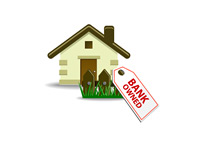How Long Will It Take the Real Estate Market in the United States to Recover? Some Perspective from the Past 30 Years
 Over the past thirty years, the overall real estate market in the United States has fluctuated wildly due to varying reasons. You had the crippling recession in the early 1980s. You had the stock market crash in 1987. You had oil booms and busts which ignited certain areas and then brought them down just as quickly. You had the recession in the early 1990s. You had the first dot-com boom which brought a flood of liquidity to the markets, and then you had the dot com bust in early 2000 which took that liquidity away just as fast. Then you had 9/11, which kept interest rates extremely low and led to one of the biggest housing booms in the history of mankind.
Over the past thirty years, the overall real estate market in the United States has fluctuated wildly due to varying reasons. You had the crippling recession in the early 1980s. You had the stock market crash in 1987. You had oil booms and busts which ignited certain areas and then brought them down just as quickly. You had the recession in the early 1990s. You had the first dot-com boom which brought a flood of liquidity to the markets, and then you had the dot com bust in early 2000 which took that liquidity away just as fast. Then you had 9/11, which kept interest rates extremely low and led to one of the biggest housing booms in the history of mankind. Then, after one of the biggest booms, you had one of the biggest busts when the collapse in subprime mortgages led to an implosion of many regional real estate markets in the United States.
Some real estate markets, such as Las Vegas, Phoenix and Miami, have fallen over 25% from their highs.
More real estate markets have experienced moderate drops. Other real estate markets, such as Manhattan and some states in the Midwest, have actually seen their median home values increase during this "implosion" in the real estate market.
The big question that most people have is: how long will it take for these markets to recover? If you bought a condo in Las Vegas for $500k, and it is now worth $300k, exactly how long will it take before you are breakeven again?
Based on historical data, you might not like the answers that you are about to hear.
We have done some research and found a number of different cities in the United States that have experienced some kind of a major downturn in their real estate markets over the past 30 years. We have then figured out the median home prices in each city before the market popped, the median home price at the "bottom" and the number of years that it took to recover.
One thing that you have to consider - these numbers DON'T take into account inflation. Meaning, let's say that you buy a home for $100k, and the value slips to $80k. Over a period of ten years, the value of the home recovers back to your original $100k. Technically speaking, your investment is back to even again. But if you factor in inflation, you are still well behind on your investment.
There was a major crash in California in the early 90's. Some markets fell as much as 25% - in Los Angeles, the median home price fell over 20% from 1990 until 1996. The Los Angeles real estate market took a full ten years to rebound to its 1990 high.
New York real estate doesn't always go up. In 1989, the average price of a house in New York was $213k. Over the next two years, prices dropped over 7% and took a full nine years to recover back to their 1989 highs.
San Francisco, another seemingly always-hot real estate market, suffered greatly in the early 90's as well. After touching a high of $286k in 1990, the San Francisco real estate market was cooled off by the nationwide recession. The market almost lost 10% of its total value, and ended up taking a full eight years to recover.
Houston and Austin, a couple of cities that experienced the highs and lows of the oil boom and bust in the 80's, both fell off dramatically in value in the mid 80's. The average home price in Austin, Texas dropped over 25% and took a full eight years to recover. Houston real estate prices dropped 20%+ and took a full fifteen years to rebound.
When you take into account inflation, some markets HAVE STILL NOT fully recovered over 20 years after the fact. California and New York recovered, and then some, but other markets such as Houston have still not fully recovered, when you take into account inflation.
The point of this article? Based on past data, don't expect a quick rebound, especially if you currently own a home in an extremely hard hit market such as Miami or Phoenix.
Filed under: Real Estate News | The Economic Meltdown | General Knowledge



